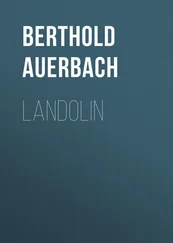Berthold Auerbach - On the Heights - A Novel
Здесь есть возможность читать онлайн «Berthold Auerbach - On the Heights - A Novel» — ознакомительный отрывок электронной книги совершенно бесплатно, а после прочтения отрывка купить полную версию. В некоторых случаях можно слушать аудио, скачать через торрент в формате fb2 и присутствует краткое содержание. ISBN: , Жанр: foreign_antique, foreign_prose, на английском языке. Описание произведения, (предисловие) а так же отзывы посетителей доступны на портале библиотеки ЛибКат.
- Название:On the Heights: A Novel
- Автор:
- Жанр:
- Год:неизвестен
- ISBN:http://www.gutenberg.org/ebooks/33294
- Рейтинг книги:4 / 5. Голосов: 1
-
Избранное:Добавить в избранное
- Отзывы:
-
Ваша оценка:
- 80
- 1
- 2
- 3
- 4
- 5
On the Heights: A Novel: краткое содержание, описание и аннотация
Предлагаем к чтению аннотацию, описание, краткое содержание или предисловие (зависит от того, что написал сам автор книги «On the Heights: A Novel»). Если вы не нашли необходимую информацию о книге — напишите в комментариях, мы постараемся отыскать её.
On the Heights: A Novel — читать онлайн ознакомительный отрывок
Ниже представлен текст книги, разбитый по страницам. Система сохранения места последней прочитанной страницы, позволяет с удобством читать онлайн бесплатно книгу «On the Heights: A Novel», без необходимости каждый раз заново искать на чём Вы остановились. Поставьте закладку, и сможете в любой момент перейти на страницу, на которой закончили чтение.
Интервал:
Закладка:
"The king knows that I cannot live unless there be flowers in my room, and has given orders to have a fresh bouquet placed there every day. This displeases me. A flower that a friend has stooped to pluck for you is worth more than a thousand artistically arranged bouquets.
"The king has also left orders that bouquets shall be sent daily to Baroness N- and Countess A-. I think this is only to avoid remarks upon the attentions shown me. I am angry at the king. He shall not have a line from me.
"I have for some time past been taking lessons in modeling, from a professor at the academy. He has finished a bust of me, and has used it as a model for a figure of Victory, to be placed on the new arsenal. Have I not reason to be proud? After this, I shall ever be in the open air, and shall see nothing but the blue sky, the sun, the moon, and the stars, and, at noon, the guard-mounting.
"The professor says that I have talent for modeling. This has made me quite happy. Painting and drawing are only half the battle-mere makeshifts. Will you permit me, on my return, to make a relievo of you?
"Did I not, in one of my letters to you, speak of a secret in regard to the queen?
"I think I did.
"The affair is now at an end. For love of the king, the queen wished to enter our church, or rather yours-pardon me, once and for all time, I have no church. The king behaved nobly in the matter. I shall never forget the time he told me of it. He is, indeed, a great man. How glorious it is, that there are princes on earth who realize our ideal of the perfect man. Free and yet self-possessed, unspoiled, unperverted and unbiased. If there were no kings, we could no longer know a free, beautiful, perfect man. I use the word beautiful in its highest sense, and of course presuppose the existence of a noble mind. All are not gods who suffer themselves to be worshiped.
"The poet and the king are, of all men, alone perfect. All others-be they musicians or painters, sculptors or architects, artists or scholars-have narrow, contracted vocations, solo instruments, as it were. The poet and the king are the only ones who grasp life in all its phases. To them, naught is devoid of meaning, because all belongs to them. The poet creates a world; the king is a world in himself. The poet knows and depicts the shepherd and the huntsman, the king and the waiting-maid, the seamstress-in fact, all. But the king is hunter and statesman, soldier and farmer, scholar and artist, all in himself. He represents the orchestra of talents. Thus is he king, and thus does he represent a people, an age-aye, humanity itself, and at its best.
"Ah, Emma! Call me Turandot. Schoning, the poetic chamberlain, is also paying his addresses to me.
"Do you know what I ought to have been?
"I do.
"Queen of a tribe of savages. That is what I was created for. My true vocation would be to found a new civilization. Don't laugh at me. I am not joking; indeed, I'm not. I am fit for something far better than all I have here. I am not modest. I judge others and myself, too. I know my merits and my faults, also.
"On father's estate, there is a hammock that hangs between two elms. My greatest pleasure was to lie in it, suspended in the air, while I dreamt of distant woods.
"Do you know some savage tribe that would elect me as its queen? I have procured some of the Indian melodies, if they really deserve the name. One of the professors at the university, who spent six years among the Indians, recently gave a lecture at court. He brought some of their instruments with him, and had them played on. There was more noise than music. It seemed like the lisping of a nation which, as regards civilization, is yet in its infancy."
"Four o'clock in the morning,"Forget all that I have written to you, as you would the breezes and the weather-changes of yesterday.
"I have just left my bed, in order to write to you. I cannot sleep. I am scarcely dressed while I sit here speaking to you. Oh, that I could speak to you! Writing is a miserable makeshift-nay, helplessness itself.
"I don't know what ails me. All that I am-my very self-seems as if only for the time being. I feel as if waiting for something, I know not what. I fancy that the very next moment must bring it, and that I shall either be doing some wonderful thing, or have it happen to me-that I shall be completely changed and become a great healing power, instead of the puny, useless child of man that I now am. I listen and fancy that I must hear a tone that has never yet been uttered on earth.
"There is no use trying-I cannot write. I imagined that it would soothe me if I could force myself to think and speak of all things in definite terms, but I know nothing definite. I only know that I am unhappy. Not unhappy, but as if dead and yet alive. I imagine myself a sleep-walker.
"I can write no more. I close my letter and shall go to bed. I want to sleep. All the world about me lies hushed in slumber. Oh, that I could dream myself into another world, even though my sleep were one from which there is no waking!
"Good-night! Good-morning! Irma."
CHAPTER VII
"To-morrow, I mean to bring Countess Irma to you," said Doctor Gunther to his wife, one evening. "She's the daughter of my old friend."
"In voice and manner, the countess is full of majesty, but her singing is not practical."
"Then you shall teach her. She will be glad to learn from you."
"If she be willing, I am quite at her service."
The doctor was delighted to find it so easy to bring the two ladies together. He knew, of course, that his wife complied with his every wish, but in this instance he was doubly anxious that all should go smoothly.
For some time past, he had observed that Irma was in a feverish condition which, during the last few days, had been growing worse; but he was one of those physicians who pay great attention to mental conditions and, instead of waiting for disease to make its appearance, endeavor to avert it by proper changes in the mode of living. He did not know the cause of Irma's excitement, but he knew that her temperament was one of extremes, and felt sure that if she could only obtain an insight into a pure home and, perhaps, become initiated into its ways, it would have a tranquilizing effect and lead her mind to move in quieter channels. He had enough experience to know that there are no substitutes for sympathy and friendship, but felt that the acquaintance of a citizen's wife, of exalted character and ripe culture, could not fail to have an effect upon Irma, who had thus far known no life but that of the cloister and the court.
Gunther had no need to give his wife instructions, or even a mere hint as to the way in which she was to endeavor to gain an influence over Irma. He felt as sure of his wife's course in the matter as if she were a force in nature, and well knew that, if left to her own methods, the result would be so much the more certain.
Gunther usually kept his household free from all relations with the court; but this was the daughter of his friend-although that friend was angry at him-and he allowed her the freedom of his house.
Some weeks before, when speaking of the Te Deum on the occasion of the birth of the crown prince, Irma had casually referred to her having met Gunther's wife and youngest daughter. The doctor had again, as if by the merest chance, introduced the subject, and, almost without knowing it, Irma had expressed a wish to improve the slight acquaintance thus begun. This was just what he wished for, and, on the afternoon of the day following, he conducted Irma to his beautiful, well-furnished home.
Gunther's wife was Swiss by birth, and had come from a wealthy and cultured family. She spoke High German with a strong Alemannic accent. She endeavored neither to retain the dialect nor to acquire the language of books. Her easy, natural ways seemed the result of careful culture, but there was no attempt to show off either. As a matter of course, she was perfectly conversant with all that related to the economy of the household, and at the same time fully alive to all that makes for beauty and the common weal.
Читать дальшеИнтервал:
Закладка:
Похожие книги на «On the Heights: A Novel»
Представляем Вашему вниманию похожие книги на «On the Heights: A Novel» списком для выбора. Мы отобрали схожую по названию и смыслу литературу в надежде предоставить читателям больше вариантов отыскать новые, интересные, ещё непрочитанные произведения.
Обсуждение, отзывы о книге «On the Heights: A Novel» и просто собственные мнения читателей. Оставьте ваши комментарии, напишите, что Вы думаете о произведении, его смысле или главных героях. Укажите что конкретно понравилось, а что нет, и почему Вы так считаете.












